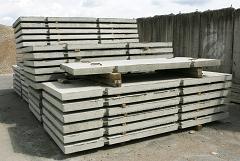Labour Ministry: Interim period for labour from new EU states causes problems
Published:
20 January 2005 y., Thursday
The Ministry of Labour has admitted that legislation which took effect in May 2004 limiting the free movement of labour from new member states of the European Union has not had the desired effect.
In fact, an assessment conducted by the ministry points to a number of negative consequences of the two-year interim period. Under the law, which runs out in May 2006, citizens of countries that joined the EU this year need a work permit before they can take employment in Finland.
Finnish trade unions, fearing a flood of cheap Estonian labour onto the Finnish labour market, were among the main proponents of the measure. However, loophole allows Finnish companies to recruit Estonian workers through labour rental agencies. The arrangement allows Estonians to work in Finland as long as they have a nominal Estonian employer.
The situation has actually led to a decline in applications for work permits by citizens of new EU member countries.
Now, just over 200 work permits are granted to citizens of the countries in question. Before the EU expansion in May, the rate outside the summer season was between 600 and 800 a month.
Šaltinis:
helsinginsanomat.fi
Copying, publishing, announcing any information from the News.lt portal without written permission of News.lt editorial office is prohibited.
The most popular articles
 The Kakheti Regional Roads Improvement Project for Georgia aims to reduce transport costs and improve access and traffic safety for the Kakheti regional roads.
more »
The Kakheti Regional Roads Improvement Project for Georgia aims to reduce transport costs and improve access and traffic safety for the Kakheti regional roads.
more »
 “Don Quixote – Made in Romania” brought the curtain down on the Cultural Days of the European Central Bank (ECB) 2009, with an expressive combination of tap dance, folklore, pantomime and martial arts.
more »
“Don Quixote – Made in Romania” brought the curtain down on the Cultural Days of the European Central Bank (ECB) 2009, with an expressive combination of tap dance, folklore, pantomime and martial arts.
more »
 The Latvian Finance and Capital Market Commission permitted Mr. Vladimir Antonov, who is also the main shareholder of AB Bank SNORAS, to acquire and manage up to 33 per cent of the shareholding of the Latvian bank AS “Latvijas Krajbanka”.
more »
The Latvian Finance and Capital Market Commission permitted Mr. Vladimir Antonov, who is also the main shareholder of AB Bank SNORAS, to acquire and manage up to 33 per cent of the shareholding of the Latvian bank AS “Latvijas Krajbanka”.
more »
 On October 30, the French-capital company “Eurovia Lietuva” opened a new asphalt plant near the capital city Vilnius. The company invested EUR 3.5 million into the new factory which is located near the old manufacturing facility to be closed soon.
more »
On October 30, the French-capital company “Eurovia Lietuva” opened a new asphalt plant near the capital city Vilnius. The company invested EUR 3.5 million into the new factory which is located near the old manufacturing facility to be closed soon.
more »
 During the extraordinary general shareholders' meeting of AB Bank SNORAS, which took place on 5th November 2009, it was decided by additional contributions to increase the authorized capital of the bank by more than LTL 88 million.
more »
During the extraordinary general shareholders' meeting of AB Bank SNORAS, which took place on 5th November 2009, it was decided by additional contributions to increase the authorized capital of the bank by more than LTL 88 million.
more »
 The French-capital company “Eurovia Lietuva” opened a new asphalt plant near the capital city Vilnius.
more »
The French-capital company “Eurovia Lietuva” opened a new asphalt plant near the capital city Vilnius.
more »
 “Banking Market in the Baltics 2009-2011, CEE Banking Brief” report recently presented by Intelace Research states that, despite the current economic recession, Estonia, Latvia and Lithuania are still among the most advanced banking markets in Central and Eastern Europe (CEE).
more »
“Banking Market in the Baltics 2009-2011, CEE Banking Brief” report recently presented by Intelace Research states that, despite the current economic recession, Estonia, Latvia and Lithuania are still among the most advanced banking markets in Central and Eastern Europe (CEE).
more »
 The Bank of Lithuania permitted AB Bank SNORAS to include in the second level capital LTL 72.5 million (EUR 21 million) worth emission of termless debt securities distributed via non-public distribution on 31st August this year.
more »
The Bank of Lithuania permitted AB Bank SNORAS to include in the second level capital LTL 72.5 million (EUR 21 million) worth emission of termless debt securities distributed via non-public distribution on 31st August this year.
more »
 The remit of the Parliamentary Committee set up to examine the financial crisis was debated at its first meeting on Wednesday (4 November).
more »
The remit of the Parliamentary Committee set up to examine the financial crisis was debated at its first meeting on Wednesday (4 November).
more »
 Europeans can now use direct debit from their home account to pay bills anywhere in the EU.
more »
Europeans can now use direct debit from their home account to pay bills anywhere in the EU.
more »